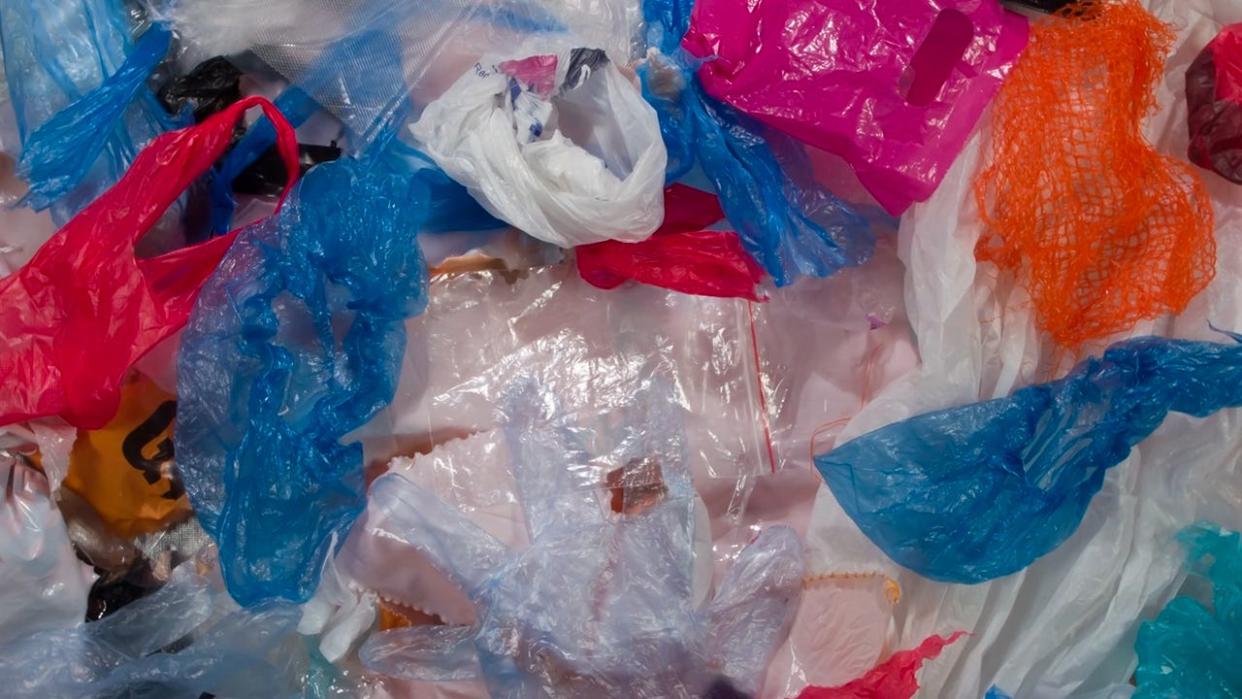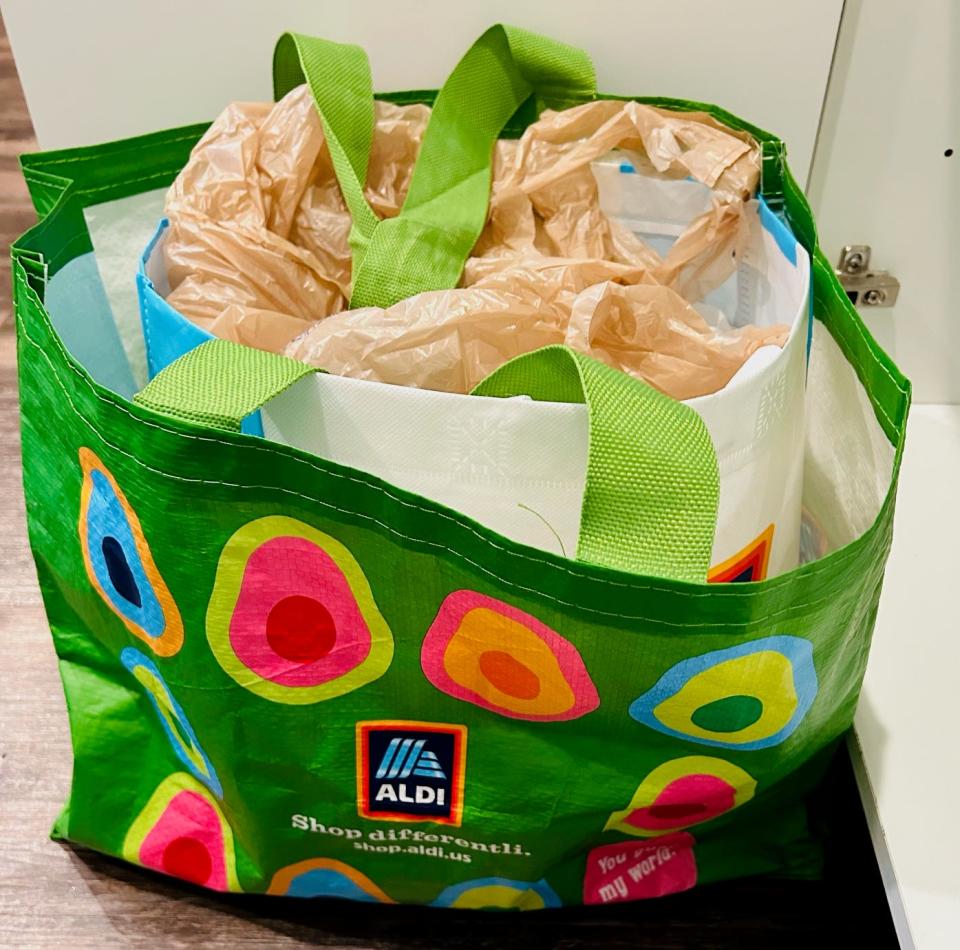How many times do you need to use your reusable bags to make it count? What the experts say

Plastic pollution is one of many symptoms associated with recycling and climate change that continue to negatively impact the environment, say experts.
“Whenever we talk about anything that's disposable, single use plastics are a great example,” said Shelie Miller, professor of sustainable systems at the School for Environment Sustainability at University of Michigan. “It really is part of a throwaway culture that we have developed, where we take resources out of the earth, using a lot of energy to make something only really for the idea that it's created to be thrown out.”
‘Plastic bags are very difficult to recycle’
“Plastic bags in particular, are very difficult to recycle,” said Miller. “There's not much material to them. They often don't play well with traditional recycling infrastructure. A lot of them end up in landfills. From an environmental standpoint, this is where we would like them to be if they're not recycled. The alternative is a small fraction will end up in the environment and cause some problems for wildlife.”
More: EV charging station at Augusta Municipal Building indicative of larger Green Augusta effort
‘What do the numbers say’
The annual production rates of synthetic polymers or plastics have increased over the last 70 years. To date, nearly 10 billion metric tons of plastic have been produced globally, according to a study conducted by the Proceedings of the National Academy of Sciences.
Although most of this plastic waste is buried in landfills, recycled, or incinerated, an estimated 12% to 18% of plastic waste ends up in the environment through inadequate management and littering.
Experts say that due to the synthetic nature, plastics don’t appreciably decompose; rather, they continually fragment into smaller and smaller pieces. This trait combined with the explosive growth in mismanaged plastics suggests that the mass of accumulated mismanaged plastics may be increasing at a rate of 2- to 10-fold on a decadal time scale.
Single-use plastic bags are one of the most consumed items globally, according to research conducted by United Nations Environment Programme. However, alternatives for shopping, which include cotton and paper reusable bags, also come with an environmental footprint, and don’t necessarily outperform plastic bags in all environmental categories.
More: Arbor Day Foundation using data to locate neighborhoods in Augusta in need of more trees
‘What environmental impacts do we care about?’
“Part of the challenge is that everything we make has an environmental impact,” said Miller. “And so this kind of comes down to the question of: What environmental impacts do we care the most about? Often, households see that canvas bag and it just sort of feels better than the plastic bag.”
What about cotton bags?
“At the same time, producing cotton is very environmentally and water intensive,” said Miller. “It has a lot of fertilizers and pesticides associated with it, commonly. So there's a lot of agricultural issues associated with producing cotton in order to make those cotton bags. That doesn't mean that canvas bags are a bad thing. But often they have to be reused a much larger number of times than say something like a more heavy duty plastic reusable bag.”

How many times do I need to reuse my reusable bag?
Reusable bags can be environmentally superior to single use plastic bags if used multiple times, experts say.
A cotton bag needs to be used 50-150 times to have less impact on the climate.
A thicker polypropylene bag must be used for an estimated 10-20 times.
A slimmer reusable polyethylene bag must be used 5-10 times to have the same climate impacts as a single use plastic bag.
“In general, the more times you can reuse a reusable item the better,” Miller said. “I always go back to the three Rs − reduce, reuse and recycle. That’s always a good rule of thumb for people to follow.”
This reporting content is supported by a partnership with several funders and Journalism Funding Funding Partners.
Erica Van Buren is the climate change reporter for The Augusta Chronicle, part of the USA TODAY Network. Connect with her at EVanBuren@gannett.com or on X: @EricaVanBuren32.
This article originally appeared on Augusta Chronicle: Reusable shopping bags key to combating plastic pollution
